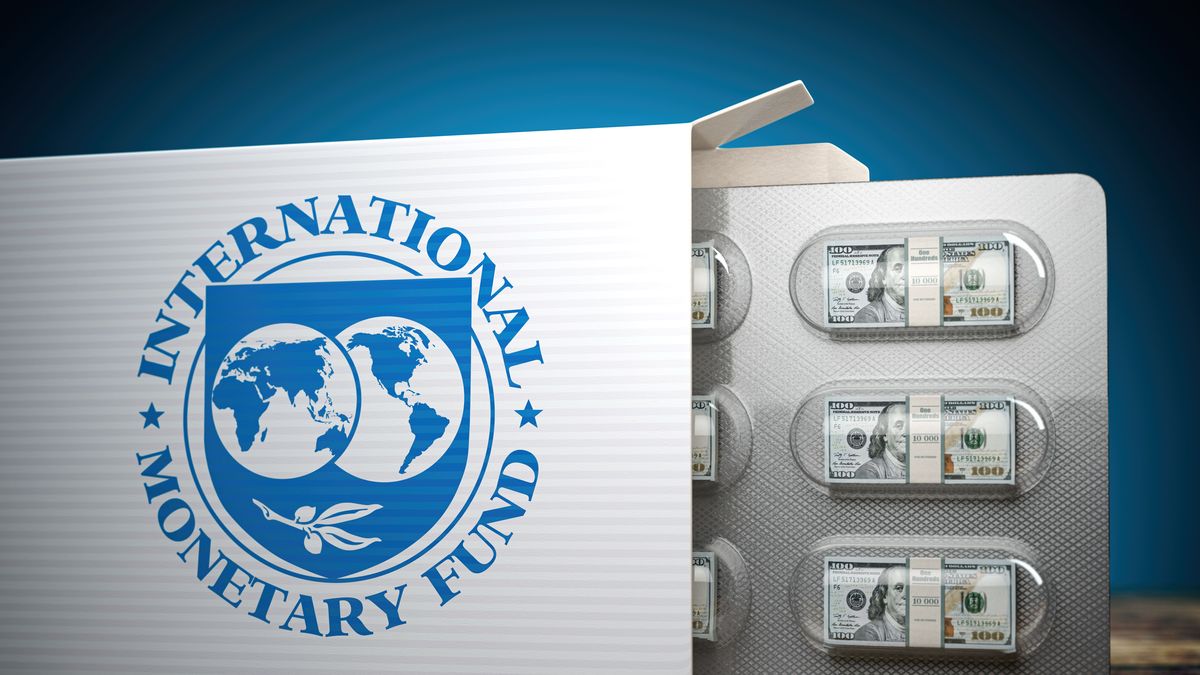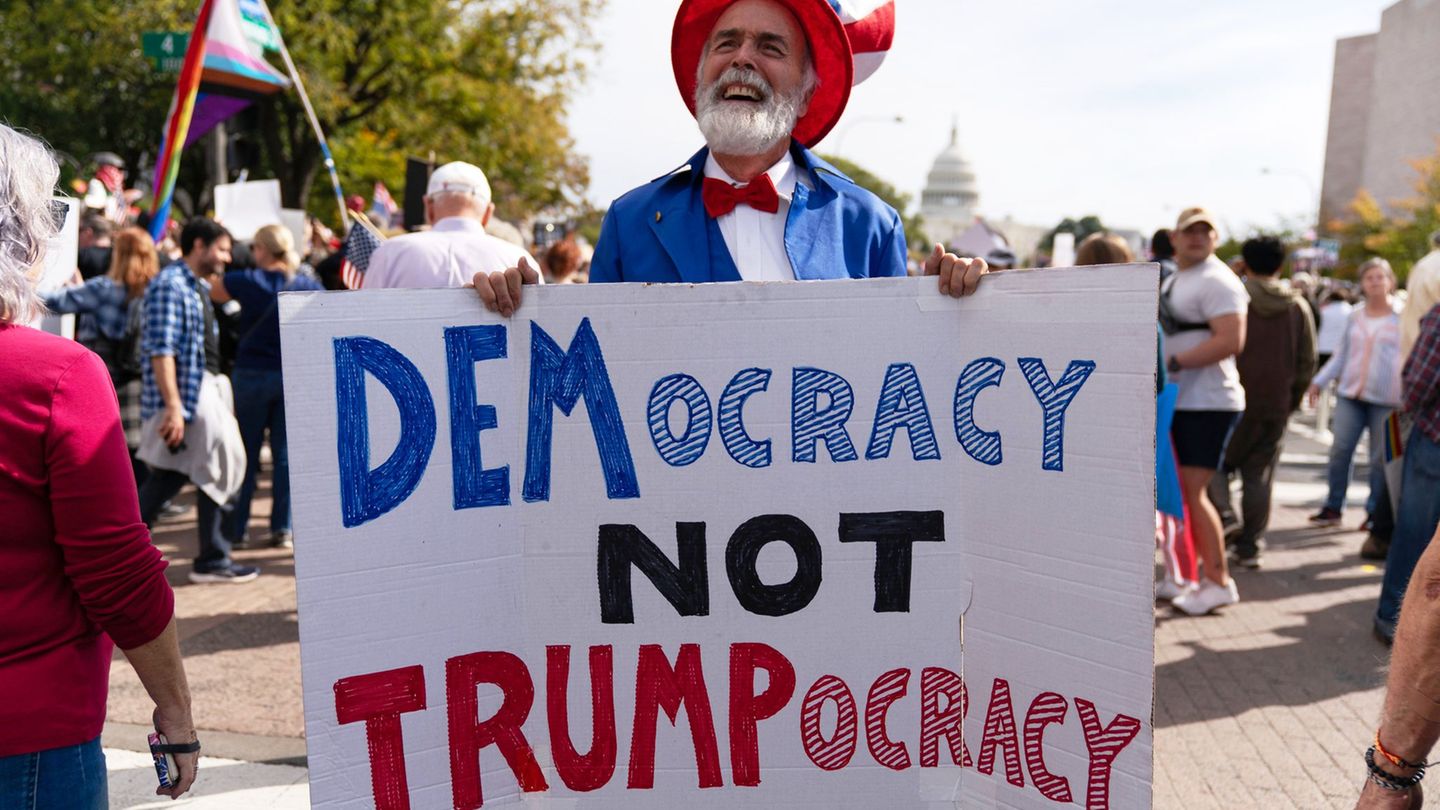He February 1 It approaches with a key expiration for the minister Luis Caputo: the payment of 640 million dollars In interest to the International Monetary Fund (IMF). Although the technical mission sent by the agency concluded its round of consultations without explicit advances, the date continues to mark the first great challenge of the year for the Government.
Payment will be effective, but it will be another sign of the difficult fiscal situation that the country is going through. Meanwhile, negotiations with the IMF continue in a shot and daca that seeks the exit towards a definitive agreement, with the government in the porphy of managing this debt so that it does not even more complicate the economic landscape prior to the elections. The February expiration, although it seems less compared to the total debt figures, represents immediate pressure on the reserves of the Central Bank, which remain scarce to meet the commitments of the coming months.
Within the framework of negotiations with the IMF, it arises a possible strategy of two simultaneous agreements. On the one hand, according to transcended, a short pact could be agreed, only one year, with the Stand-by formatwhich would serve to face immediate maturities and ensure the necessary disbursements to cover payments until December. On the other, the possibility of a more extensive agreement is considered, under the scheme of Extended facilitieswhich would provide the additional funds that the Government needs to carry out its plan of liberation and unification of the exchange market. The entire scheme only betrays the support of Trump management to the Argentine government in the heterodox form that will arrive with the agreement.
Milei’s IMF and strategy: an electoral shortcut?
While the government continues to negotiate a new program with the IMF, the economic scenario remains uncertain. IMF audits are suspended, but payments continue their course. Until there is a definitive agreement, Argentina will have to continue facing the agreed commitments, a situation that generates more doubts than certainties. What has been achieved so far is a slight reduction in the surcharges that the IMF charges to the most indebted countries, which has a positive impact on this year’s obligations, but the panorama remains tense.
As stated, the expectation of an understanding in two stages takes more and more form. On the one hand, A quick agreement, almost processingthat allows the government to overcome immediate payments and close the electoral stage without major shocks. But, as is usually the case in these cases, the most complex would come after the elections, with the arrival of the “true” adjustment, the one that will resolve the question of the exchange market and the debt. This strategy, which could be qualified as an electoral “shortcut”, would aim to keep calm before the elections and then apply the adjustment less visible to avoid a crisis of legitimacy.
The role of post-electoral devaluation: Who will pay the cost?
The fear of a devaluation that impacts wages, retirement and purchasing power of Argentines remains latent. It is an open secret that the intention of the government is to liberalize the exchange rate, but, like any adjustment, to do so in a more controlled context, where the negative effects are not so visible. The key seems to be in when and how that “exchange sincereness” will be implemented. Fear, however, is that the play is too late, and the adjustment impacts a population already fatigued and impoverished, which could see how an economic model is disassembled that promised to avoid the social costs of previous reforms.
State intervention: a temporary brake
In the midst of this tension, the government has decided deepen your intervention in the economyespecially in the exchange market. The containment of the official dollar and the measures to restrict the escalation of the exchange gap are nothing more than a short -term solution. So is the decline in retentions to agriculture, another way to artificially improve the exchange rate and encourage dollars. The truth is that Argentina is still trapped between the social discomfort generated by inflation and the need to comply with payments to the IMF. Meanwhile, the reserves of the Central Bank are still insufficient to deal with debt payments, and the government is forced to maintain the intervention policy so as not to see the stability of the exchange market before the elections explode.
With this look, the agreement that looms with the IMF could have a double purpose: relieve the pressure of the immediate payments and gain time for the “great adjustment” that would arrive after the elections. The problem is that these types of agreements, even if they are presented as temporary solutions, always end up dragging the country towards a spiral of adjustments that, sooner rather than later, affect the real economy.
From debt to competitiveness: a false departure?
The Government continues to insist with the reduction of taxes as a measure to improve competitiveness, that is, a fiscal devaluation instead of an exchange. It is a claim that resonates strong among companies. However, these reforms seem to not be enough to solve the structural problems of the economy. Beyond the reduction of withholdings and strategy of the “Blend dollar”, which allows exporters to liquidate a part of their currencies in the parallel market, the underlying problem remains the same: a dysfunctional exchange market and an external debt That seems to have no end.
The IMF agenda: more adjustment to view?
The IMF, meanwhile, continues to claim a structural fiscal adjustment that, although it has been accepted as part of the Government program, is not visible in current policies. The fund, in fact, has indicated that the fiscal adjustment in the country has been “a success”, but the measures so far adopted do not resolve the question of exchange delay or external debt. As the electoral calendar progresses, analysts cautiously look at the relationship between Milei and Donald Trump, the new president of the United States. The ideological affinity between the two could facilitate the closure of an agreement with the IMF, but at the expense of an adjustment that could be more painful than anticipated.
How does the road follow?
What comes after the elections is not so clear. Although the reduction of surcharges and short -term agreements can help avoid immediate collapse, The true cost of Milei’s policies will be paid laterwhen the need for a devaluation and greater fiscal adjustments. The challenge will be How to manage social discomfort That these policies can generate, without losing the popular support that it now holds. In this sense, the government’s strategy seems to be a long -term commitment: try to maintain stability to the elections and then impose a gradual adjustment with the objective of guaranteeing compliance with the IMF. The question is whether the social cost of this play will be manageable or if it will end up overflowing the political and economic landscape of the country.
Source: Ambito
I am a 24-year-old writer and journalist who has been working in the news industry for the past two years. I write primarily about market news, so if you’re looking for insights into what’s going on in the stock market or economic indicators, you’ve come to the right place. I also dabble in writing articles on lifestyle trends and pop culture news.




